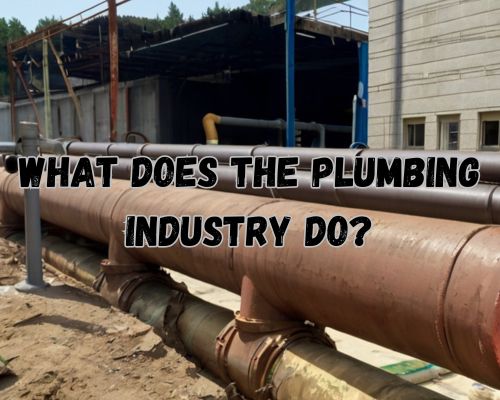Plumbing is a crucial industry that plays a significant role in both residential and commercial settings. As a plumber, you install, repair, and maintain water and piping systems. You ensure that everything from sinks and bathtubs to dishwashers and water heaters functions smoothly. The plumbing industry is not just about fixing leaky taps; it’s about maintaining the essential infrastructure that supports modern living.

In Australia, the plumbing services industry is burgeoning, with projections indicating it could reach $21.9 billion by 2029. This growth reflects the increasing demand for skilled professionals like Dean Owens from Plumber Warragul in the field. The demand is driven by the ongoing need for repairs and the installation of new systems in homes and businesses. With around 100,300 plumbers expected by 2026, employment opportunities in the sector are promising. This is particularly true for those who are dedicated to mastering the trade.
Despite these positive trends, the industry does face some challenges, such as the need to stay updated with technological advancements and regulatory changes. Moreover, it remains a field largely dominated by small businesses, contributing to the industry’s competitive landscape. Nonetheless, the favourable conditions for contractors and steady revenue growth suggest a resilient and vital sector poised for continued expansion.
The Role and Services of the Plumbing Industry
The plumbing industry is vital for both residential and commercial infrastructure, providing essential services such as installation, maintenance, and repair of water and piping systems. Plumbers play a crucial role in ensuring the functionality and safety of these systems.
Key Plumbing Services and Fixtures
Plumbers like Dean Owens from Plumber Warragul are responsible for installing and maintaining bathrooms and kitchens. They also handle elements like sinks, toilets, and dishwashers. Additionally, they are in charge of hot water systems and heaters.
Professional plumbing services include water supply management, making sure that both residential and commercial properties have reliable access to clean water. This can involve pipe installation, repair, and maintenance.
Many plumbing businesses also offer emergency services for urgent issues like burst pipes or failed water heaters. Skilled plumbers assess the problem and provide timely solutions to avoid further damage and inconvenience.
Regulation, Qualifications, and Employment
To become a plumber in Australia, you must undergo industry-certified training and obtain specific qualifications. Regulatory bodies like the Victorian Building Authority ensure that plumbers meet safety and compliance standards.
Trade courses and post-trade industry programs are available to help you upskill or gain certification as a Master Plumber. These qualifications open up employment opportunities in various sectors, including residential, commercial, and industrial plumbing services.
The average salary for plumbers varies based on experience and location, but skilled professionals often see competitive wages. Employment in the plumbing industry remains robust, offering a stable and rewarding career path in an essential trade.
Industry Dynamics and Future Opportunities
The plumbing sector in Australia is experiencing notable advancements and transformations. You will find insights into market trends, technological innovations, and business strategies that are shaping this industry’s future.
Market Trends and Growth
The Australian plumbing industry is set to grow with an annualised revenue increase of 2.0% projected, reaching $21.9 billion by 2028-29. This growth is driven by recovering residential markets and sustained demand in non-residential projects.
The industry’s expansion is supported by infrastructure development and the rise of new homes. Small businesses are thriving due to better profit margins and a growing economy, enhancing the market size and market share.
COVID-19’s impact has led to increased earnings for skilled plumbers as adaptation became crucial for success.
Technological Innovations and Efficiency
Technological advancements are revolutionising the plumbing industry, making it more efficient and smart. Innovations such as smart plumbing fixtures, smart toilets, and intelligent bathroom systems are becoming standards.
These new technologies offer improved efficiency, reducing water wastage and energy consumption. Smart home integration enhances customer satisfaction by providing seamless, automated plumbing solutions.
Efficiency is key for maintaining competitive profit margins, and adopting the latest technologies helps meet new construction industry standards.
Business Strategies and Consumer Engagement
Business strategies in the plumbing sector are evolving. They now focus on digital marketing and consumer engagement.
Social media, online reviews, and digital platforms are crucial for attracting and retaining customers.
Utilisation of online payments and scheduling systems streamlines business operations. Meanwhile, addressing customer needs through personalised service and prompt communication enhances trust and loyalty.
Small businesses, in particular, benefit from building strong online presences. Adapting to these modern strategies helps ensure continued growth and success in a competitive market.